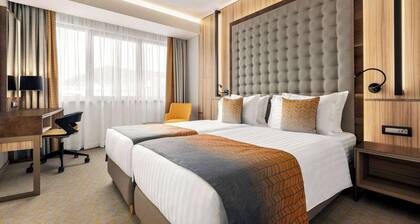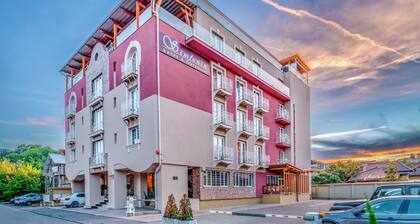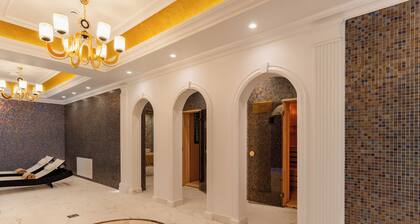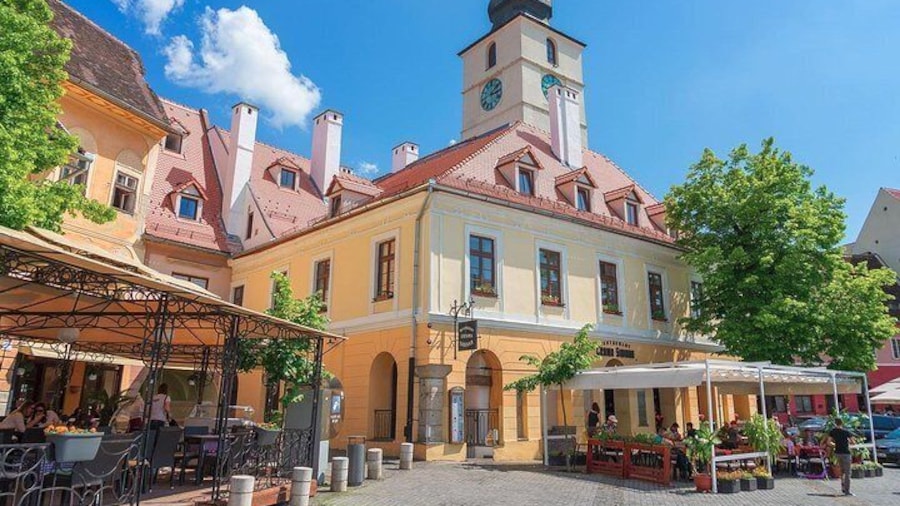Visit Râmnicu Vâlcea to experience Romania’s cultural and farming history in a beautiful location. This sizeable town’s architectural beauty is accentuated by the gorgeous Olt River and surrounding Cozia Mountains. Find preserved medieval churches, gorgeous parks and art museums as you explore.
The town itself dates back as far as 1505, though some buildings were constructed even earlier. Notice the distinctly modern façades of the town center, which are a result of Socialist-era reconstructions in the 1980s.
Despite these relatively new developments, Râmnicu Vâlcea preserves its history in a number of intriguing museums. Visit the Village Museum of Vâlcea County, an open-air exhibition featuring buildings that recreate a regional 19th-century village. See how farmers, woodworkers, potters and priests lived and worked in the area.
The town has been the home of several influential Romanians, including Anton Pann, who wrote the Romanian national anthem. Stop at the Anton Pann Memorial House to inspect exhibits of his belongings and learn about his life. For more art, walk through the Simian House Art Museum, which displays paintings by famous Romanians.
After some culture, enjoy the outdoor scenery at the Mircea cel Bătrân Park. This verdant commons in the town center features flower gardens and a playground for the kids. Take the family to the Râmnicu Vâlcea Zoo to see bears, monkeys and kangaroos playing in shaded enclosures.
Râmnicu Vâlcea’s downtown, on the east side of the Olt River, has a range of great restaurants and low-key bars where locals gather. Shop or eat at that River Plaza Mall, which has brand-name boutiques.
Râmnicu Vâlcea is a few hours by train northwest from BucharestOpens in a new window. Once in town, get around the compact downtown on foot or use local buses.
Journey north from Râmnicu Vâlcea to see one of Romania’s most treasured sites, the Cozia MonasteryOpens in a new window. Admire exquisite frescoes, religious artifacts and Byzantine architecture framed by mountainous scenery at this 14th-century church.







